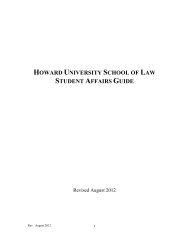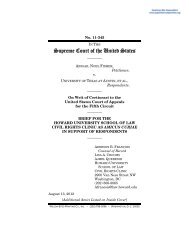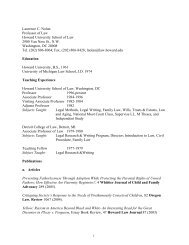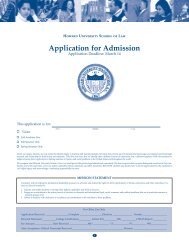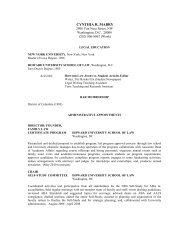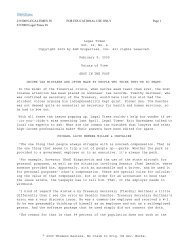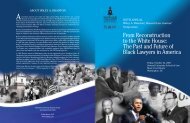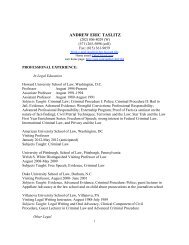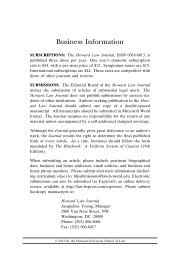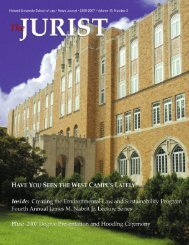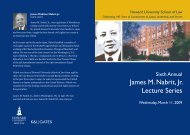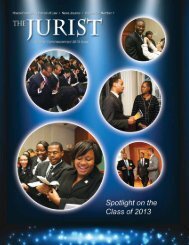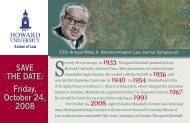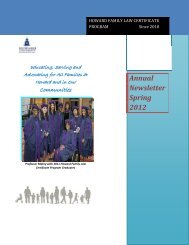Essay Questions and Selected Answers July 2004
Essay Questions and Selected Answers July 2004
Essay Questions and Selected Answers July 2004
- No tags were found...
You also want an ePaper? Increase the reach of your titles
YUMPU automatically turns print PDFs into web optimized ePapers that Google loves.
Implication of the First AmendmentThe First Amendment prevents the government from limiting the rights of citizens to freespeech. Although there are some circumstances in which this right can be limited, thegovernment action must have sufficient justification. Here, the anti-loitering statuteappears to be directed primarily at conduct, because it prohibits loitering, remaining, orw<strong>and</strong>ering about in certain types of places. However, conduct, under certaincircumstances[,] can also constitute speech. The statute also prohibits loitering for thepurpose of begging, which may mean that people are penalized under the statute for whatthey are doing in specific areas. Thus, a person’s right to both conduct as speech <strong>and</strong> tobegging, which is a type of speech, may be limited under the statute. Therefore, thestatute must satisfy the requirements of the First Amendment.The Statute’s Regulation as a Discrimination on Content <strong>and</strong> the Requirement ofStrict Scrutiny.If a state undertakes to regulate the speech of citizens in a way that discriminates on thebasis of certain content, the statute must satisfy strict scrutiny to be upheld when thestatute is enforced in certain areas. Similarly, if a statute regulates speech on the basisof the viewpoint it expresses, it also must satisfy strict scrutiny. A discrimination based oncontent means that certain types of speech are regulated or prohibited on the basis of whatthey say. Such an exercise of government power in choosing the types of speech that areappropriate is particularly disfavored under the First Amendment.Here, Section 4 prohibits the activities of loitering, remaining, or w<strong>and</strong>ering on certainproperty for the purpose of begging. Thus, the statute specifically prohibits activitiesassociated with begging, which is a type of speech. If the statute only prohibited theactivities of loitering or w<strong>and</strong>ering, it might be argued that it was content neutral. Then, thestatute could be upheld if it was demonstrated to be a reasonable time, place, or mannerrestriction enacted by the state to regulate the places or times at which speech mightoccur, rather than the actual content of the speech. But instead, this statute forbidsspeech related to begging. As a result, it can be argued that it is not content-neutral. Thestatute thus must withst<strong>and</strong> strict scrutiny to be upheld.The St<strong>and</strong>ard for Strict ScrutinyTo demonstrate that a restriction withst<strong>and</strong>s strict scrutiny, the state has the burden ofproving that the regulation is narrowly tailored to achieve a compelling governmentpurpose. The regulation mus be the least restrictive means of the state achieving itspurpose.17



